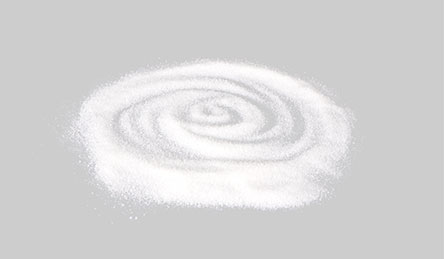
Search


The heat stabilizers, lubricants, anti-impact agents, processing aids, pigments and other additives commonly used in PVC are formulated according to product performance requirements. On the premise of ensuring product quality and processing technology requirements, keep formulation costs as low as possible. Lubricant is one of the most important factors affecting the processing of PVC resin hard products, mainly to improve the fluidity of PVC resin processing and the release properties of products, and prevent product defects due to adhesion in the machine or in the mold.
As PVC resin has a polar molecular structure, the force between molecular chains is large, and it is easy to decompose under the action of heat, light, oxygen and high shear force during processing, so it is necessary to add lubricants to PVC resin processing, adding internal lubricants to weaken the force between PVC molecules, reduce the generation of internal friction heat, and make it easy to plasticize. Adding an external lubricant reduces the friction and adhesion between PVC and steel, regulates the plasticizing rate, improves the fluidity of PVC processing, and makes it easy to melt and form. Generally speaking, internal lubricants promote plasticization and external lubricants delay plasticization. The degree of plasticization of PVC-U is about 65%, and its mechanical properties are the best. Therefore, reasonable consideration should be given to the fluidity, anti-adhesion and plasticization rate of PVC resin, that is, to balance the internal and external lubrication so as to achieve economic and continuous production.
The main feature of external lubricants is interfacial lubrication. During processing, the external lubricants can easily migrate to the surface of the product or the interface between the melt and the processing machine, where the molecules are oriented and arranged to form a lubricant molecular layer through physical adsorption. The internal lubricant can be dissolved into the polymer molecular chains to reduce the internal friction, reduce the melt viscosity, increase the melting rate of the plastic, and improve the plasticizing performance.
Fischer-Tropsch synthetic paraffin wax is mainly used as external lubricant in PVC processing and production. As Fischer-Tropsch synthetic wax has small molecular weight, low melt viscosity, high melting point, narrow melting range, less dosage can achieve the same lubricating effect, reducing the negative impact of lubricant on the physical and mechanical properties of the product, and has the irreplaceable advantage of PE wax in the adjustment of internal and external lubrication balance. Because of this, many consumers choose wholesale fischer tropsch wax.
PVC resin processing is characterized by poor fluidity, poor thermal stability, easy decomposition, etc. The products produced are brittle and have poor impact resistance, therefore, various auxiliary materials need to be added in the processing to improve its product performance.
In PVC resin processing, the choice of lubricant is crucial. An important requirement for lubricants is to add less and achieve the same lubrication effect. Fischer-Tropsch synthetic wax just meets this requirement, which reduces the difficulty of formulation design and effectively improves the use efficiency of anti-impact agents and processing aids.
The synergistic effect of Fischer-Tropsch synthetic wax and stabilizer for PVC processing is obvious, which can effectively prolong the thermal stabilization time and increase the adjustment range of process temperature. The Fischer-Tropsch synthetic wax with high melting point is especially obvious in the processing of CPVC resin. Due to the narrow adjustment range of CPVC resin processing parameters, the processing difficulty of the product is increased. The Fischer-Tropsch synthetic wax with high melting point can effectively improve the later lubrication of CPVC product processing, and improve the appearance and mechanical properties of the product.
Fischer-Tropsch synthetic wax can effectively improve the precipitation of small molecular impurities during product processing. When it comes to the precipitation of small molecular impurities, many people think that it is caused by too much lubricant. In fact, it is not always the case. Too much lubricant will definitely migrate to the surface of the product, especially in the production of PE wax for PVC pipes, impurities will adhere to the die and gather and scorch, making the surface of the product tarnish. The precipitation of impurities on the surface of PVC processing is more of the precipitation of small molecular substances in the stabilizers used, especially calcium and zinc stabilizers. After a period of production, impurities will precipitate out, and some are even more serious, precipitated impurities even adhere to the sizing sleeve. If the appropriate Fischer-Tropsch synthetic wax is added to the formula to maintain the balance of internal and external lubrication, the surface precipitation of impurities can be effectively reduced.
(1) Poor surface finish
Cause analysis: From the lubricant use, the amount of lubricant is insufficient, the thermal stability of the lubricant is poor, the loss in the early stage is large, and the lubrication in the later stage is insufficient.
Solution: The use of high melting point Fischer-Tropsch synthetic wax can effectively solve the problem of insufficient lubrication in the later stage.
(2) Black lines on the appearance of the product
Cause analysis: The internal and external lubrication is unbalanced, the amount of external lubrication is insufficient, or the quality of the lubricant is poor.
Solution: The use of Fischer-Tropsch wax can effectively solve the problem of insufficient external lubrication.
(3) Die impurities in PVC pipe production
Cause analysis: The stabilizer lubricating system configuration used is unreasonable. Calcium and zinc stabilizers showed obvious performance.
Solution: Reasonably match the stabilizer lubricating system, appropriately reduce additives such as polyols, and increase the amount of Fischer-Tropsch synthetic wax.
(4) Impurities in PVC pipe production sizing sleeve
Cause analysis: The main reason is that the formula system of calcium zinc stabilizer is unreasonable, and it is easy to migrate to the surface of the product and adhere to the surface of the sizing sleeve when it is quenched and solidified.
Solution: reduce the use of low melting point lubricants and increase the use of high melting point lubricants.
(5) Dichloromethane test failed
Cause analysis: The outer surface of the product is unqualified, mainly due to the low die temperature; the inner surface of the product is unqualified, mainly due to excessive lubrication and poor plasticization. The key is that the quality of the lubricant used is poor, which affects the plasticization quality of the product.
Solution: The use of Fischer-Tropsch synthetic wax can effectively solve the problem of unqualified detection of methylene chloride. Less dosage can achieve the same lubricating effect, which makes the production formula easy and reasonable to configure.
(6) Unqualified hydraulic performance
Cause analysis: There are many reasons, the key is the problem of lubricant.
Solution: Fischer-Tropsch synthetic wax can achieve the same lubricating effect with less dosage, and has little influence on the mechanical properties of the product, so the production formula is easy and reasonable to configure, and the production process adjustment range is wide.
King Honor is an industrial wax manufacturer that specializes in creating top-quality, reliable waxes for a variety of industries. Our waxes are crafted from a proprietary process that produces a superior wax that is resistant to oxidation, thermal degradation, and other environmental factors. Our waxes are used in a diverse range of applications including cosmetics, coatings, adhesives, and more. We strive to create waxes that are of the highest quality and meet the needs of our customers.